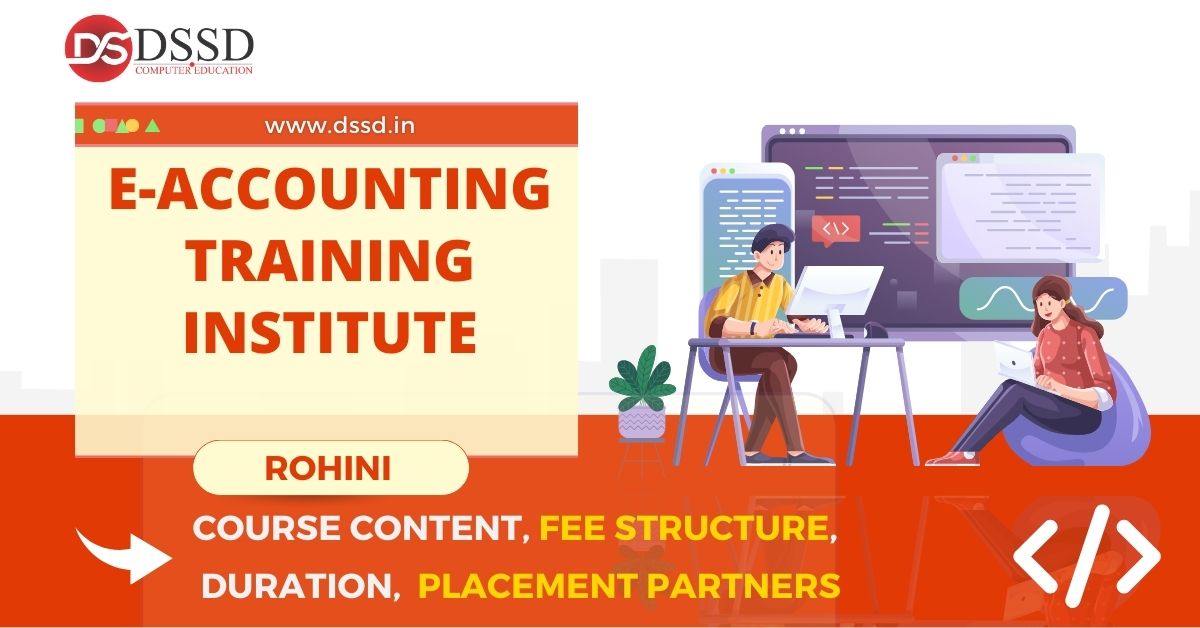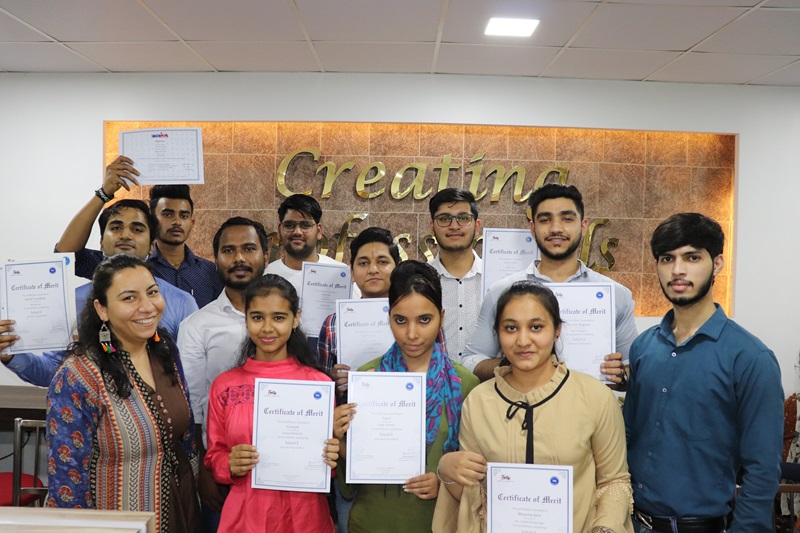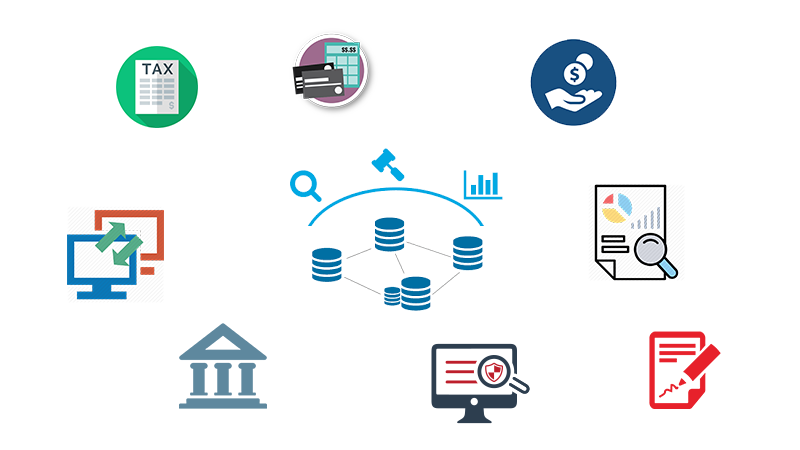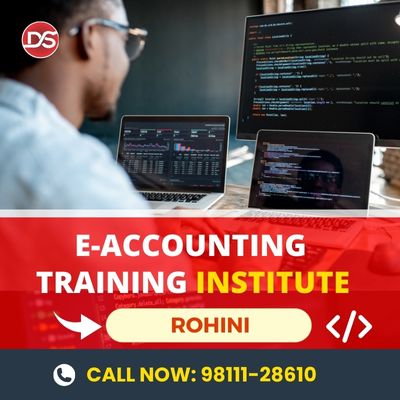Hey, my dear friends of Rohini! Are you excited to start your career? If you’re searching for the Best E-Accounting training institute in Rohini to begin your journey into E-Accounting we’ve got your back. Our aim is to assist you in finding a nearby training center that will help you achieve your goals and land a High Paying job at a good company. In this article, we’ll talk about course content, fee structure, placement partners, and duration of our E-Accounting training program. Let’s jump in and learn about marketing together!
Let’s turn your coding dreams into reality together!

Call Now For Live E-Accounting Trainings: 9811128610
E-Accounting Training (Overview): DSSD

| Duration | 6 Month |
| Total No. of Classes | 3 Classes in a Week (30 Hours of Content) or Weekends Classes |
| Training Mode | Online/Offline |
| Course Type | Certification Program |
| Course Fee | Call Now For more details: 9811128610 |
| Location | 1st Floor, H-34/1, near, Ayodhya Chowk, Sector 3, Rohini, Delhi, 110085 |
Call Now For Live E-Accounting Trainings: 9811128610
E-Accounting course Content & Modules: DSSD

Designing a comprehensive E-Accounting course requires structuring it around key concepts, strategies, and practical applications. Here’s a suggested outline for a E-Accounting course:
Introduction and Basic Brush-up of E-Accounting
- What is E-Accounting: E-accounting, or electronic accounting, refers to the process of using computerized systems and software to perform accounting tasks.
- Automation of Accounting Processes: E-accounting automates various accounting processes such as recording transactions, generating invoices, and preparing financial statements.
- Software Tools: E-accounting relies on specialized accounting software like Tally, QuickBooks, or Xero to streamline accounting tasks and improve efficiency.
- Data Entry and Management: Instead of manual bookkeeping, e-accounting involves entering financial data into digital systems, where it is stored, organized, and processed electronically.
- Accuracy and Timeliness: E-accounting helps ensure the accuracy and timeliness of financial information by reducing human errors and providing real-time updates.
Fundamentals Of Accounting
- Definition: Accounting is the process of recording, summarizing, analyzing, and interpreting financial transactions of a business.
- Double-Entry System: Transactions are recorded using the double-entry system, where every transaction has equal and opposite effects on at least two accounts.
- Assets, Liabilities, and Equity: Assets are resources owned by the business, liabilities are obligations, and equity represents the owner’s stake in the business.
- Revenue and Expenses: Revenue is income generated from sales or services, while expenses are costs incurred in running the business.
- Accounting Equation: The accounting equation states that Assets = Liabilities + Equity, ensuring that the balance sheet remains balanced.
Accounting Receivable And Payable Management
- Accounts Receivable (AR): AR represents money owed to a business by its customers for goods or services provided on credit.
- Invoicing: Businesses issue invoices to customers for goods or services delivered, specifying the amount owed and payment terms.
- Credit Policy: Establishing a credit policy defines criteria for extending credit to customers, including credit limits and payment terms.
- Credit Control: Monitoring and managing accounts receivable to ensure timely payment and minimize bad debts through follow-up and reminders.
- Aging Analysis: Conducting aging analysis categorizes receivables by the length of time they’ve been outstanding, helping prioritize collection efforts.
- Collection Procedures: Implementing efficient collection procedures, such as sending statements, making phone calls, or offering discounts for early payment, accelerates cash inflows.
- Accounts Payable (AP): AP represents money owed by a business to its suppliers or vendors for goods or services received on credit.
- Invoice Verification: Verifying supplier invoices against purchase orders and receiving reports ensures accuracy and prevents overpayments or duplicate payments.
- Payment Terms Negotiation: Negotiating favorable payment terms with suppliers, such as extended payment periods or discounts for early payment, optimizes cash flow management.
- Cash Flow Management: Balancing accounts receivable and accounts payable to maintain optimal cash flow, ensuring that there’s enough cash on hand to meet obligations without unnecessary delay or strain on finances.
Call Now For Live E-Accounting Trainings: 9811128610
Who can Join this E-Accounting Training Course in Rohini: DSSD
- Beginners with no prior coding experience
- 10th or 12th-class students interested in learning E-Accounting
- Students pursuing degrees in computer science or related fields (BCA, B-Tech, M-Tech, BSC(IT), BSC (CS)
- Students pursuing Diploma Degree
- IT professionals looking to enhance their E-Accounting
- Entrepreneurs interested in building their online presence
- Freelancers seeking to expand their skill set in E-Accounting
Call Now For Live E-Accounting Trainings: 9811128610
Career Options After E-Accounting: DSSD

- Accounting Assistant: Assist in financial record-keeping, data entry, and report generation using e-accounting software.
- Bookkeeper: Manage day-to-day financial transactions, reconcile accounts, and produce financial reports for small businesses or organizations.
- Accounts Payable/Receivable Clerk: Handle invoicing, bill payments, and collections for accounts payable, or manage customer invoices and payments for accounts receivable.
- Payroll Administrator: Process payroll, calculate wages, deductions, and taxes, and ensure compliance with payroll regulations using e-accounting systems.
- Tax Preparer: Prepare and file tax returns for individuals or businesses, leveraging e-accounting software to organize financial data and calculate tax liabilities.
- Financial Analyst: Analyze financial data, create forecasts, and generate reports to support decision-making and strategic planning for businesses or organizations.
- Audit Assistant: Assist in auditing financial records, verifying transactions, and ensuring compliance with accounting standards and regulations.
- Accounting Software Trainer: Train individuals or corporate clients in using e-accounting software, providing guidance on features, functionalities, and best practices.
- Small Business Owner/Entrepreneur: Start your own accounting or bookkeeping business, offering e-accounting services to small businesses or freelancing as a consultant.
- Financial Controller: Oversee financial operations, manage budgets, and provide strategic financial guidance to organizations, utilizing e-accounting systems for efficient reporting and analysis.
Call Now For Live E-Accounting Trainings: 9811128610
Why join DSSD for E-Accounting Training Institute in Rohini?
- Amrit Mam is an experienced instructor of Tally and E-Accounting. With a wealth of real-world problem-solving experience, she has worked with over 13 multinational companies worldwide.
- State-of-the-art facilities and modern learning environment in Rohini.
- Hands-on projects and real-world applications to enhance practical skills.
- Personalized attention and small class sizes for better interaction.
- Career guidance and job placement assistance after completion of the course.
- Affordable fees and flexible timing options to suit diverse schedules.
- Accessible location in Rohini with convenient transport links.
Call Now For Live E-Accounting rainings: 9811128610
Best E-Accounting Training Institute in Rohini

Delhi School of Skill Development (DSSD) is a place where you can learn all about computers and technology.
Are you searching for the Best E-Accounting training in Rohini? Your search ends here at the Delhi School of Skill Development (DSSD). Our comprehensive courses are designed to equip you with the skills needed to excel in E-Accounting. With experienced instructors, hands-on learning, and a focus on practical skills, DSSD stands out as the top choice for training in Rohini. Join us and take your first step towards a successful career in E-Accounting,
Call Now For Live E-Accounting Trainings: 9811128610
How to Apply:
- Contact our Admission Counselor: The first step is to reach out to our admission counselor by calling us at 9811128610. Our counselor will provide you with all the necessary information regarding the courses we offer, admission requirements, fees, and any other queries you may have.
- Schedule Your Visit: After speaking with our admission counselor, you can schedule a visit to our institute. During this visit, you’ll have the opportunity to see our facilities, interact with our instructors, and get a feel for the learning environment.
- Fix Your Demo Session: During your visit, you’ll also have the option to schedule a demo session. This session will give you a glimpse into our teaching methodology, course structure, and the topics covered in the E-Accounting training program. It’s a great way to assess whether our institute meets your learning needs and expectations.
- Enroll for Classes: Once you’ve attended the demo session and are satisfied with what our institute has to offer, you can proceed to enroll for the E-Accounting training classes. Our admission counselor will guide you through the enrollment process and assist you with any documentation or formalities required.
- Fix Your Batch Timings: After enrolling for classes, you’ll need to finalize your batch timings. We offer flexible scheduling options to accommodate your preferences and ensure that you can attend classes at a time that suits you best.
Call Now For Live E-Accounting Trainings: 9811128610
Frequently Asked Questions:
What is the course content of the E-Accounting training program?
This 6 months E-Accounting training program includes fundamentals of excel, basics of E-Accounting, advanced techniques, difficult problems, principles of excel.
How much does the E-Accounting training program cost?
To know more about the fee structure for this 6 months practical E-Accounting training program, kindly call our admission counsellor on this mobile number 9811128610
How long does the E-Accounting training program last?
The program takes 6 months to complete, with classes held regularly.
Are there any prerequisites for enrolling in the E-Accounting training program?
No, prior experience is not required to learn E-Accounting. However, having a basic understanding of E-Accounting will be beneficial as E-Accounting builds upon these foundational web technologies.
Will I gain practical experience and work on projects during the training?
Yes, the 6 months E-Accounting program includes hands-on practice and project work to help you learn.
Can the E-Accounting training program be customized to individual learning goals?
Yes, there’s flexibility in the curriculum to meet your specific learning needs.
Are there any specific batches available for working professionals or students?
We offer flexible batch timings to cater to the needs of working professionals and students. Please inquire about our batch schedules to find one that suits your availability. (call Now: 9811128610)
Is there an option for online training or remote learning for students who cannot attend in-person classes?
Yes, we offer online training options for students who prefer remote learning or cannot attend in-person classes. Our online platform ensures seamless delivery of lectures, interactive sessions, and access to course materials.
Who is the trainer delivering the E-Accounting training? What is their expertise and experience?
Our instructors are industry professionals with extensive experience i E-Accounting. They are passionate about teaching and have a proven track record of guiding students through their learning journey.
Does the institute provide any placement assistance or career support after completing the E-Accounting course?
Yes, we provide 100% placement assistance to our students upon successful completion of the E-Accounting course. Our dedicated placement cell assists in resume building, interview preparation, and connecting students with job opportunities in relevant industries.
Do I need to bring my own laptop for the training?
Yes, it is advisable to bring your own laptop for hands-on practice during the training sessions. If you don’t have a laptop right now, you can use our computer during the training session. Make sure your laptop meets the minimum requirements specified by the training provider, such as a specific operating system and web browser.
Delhi School of Skill Development (Center Location):
Related Blogs :
[table id=3 /]
